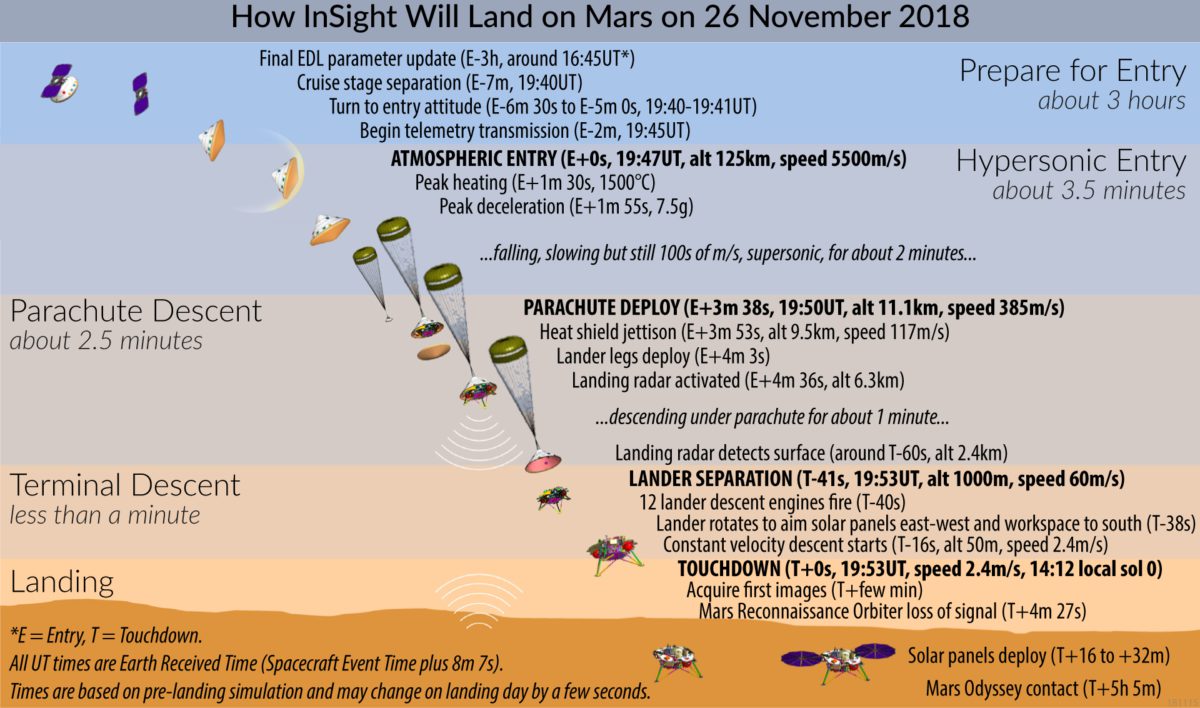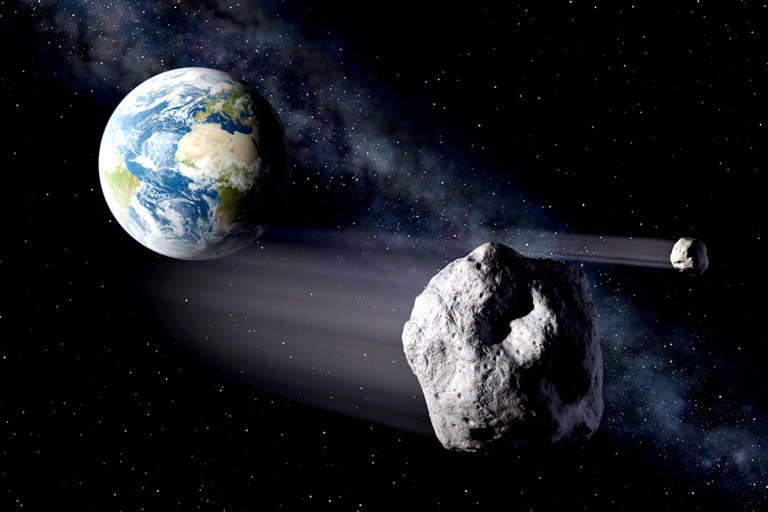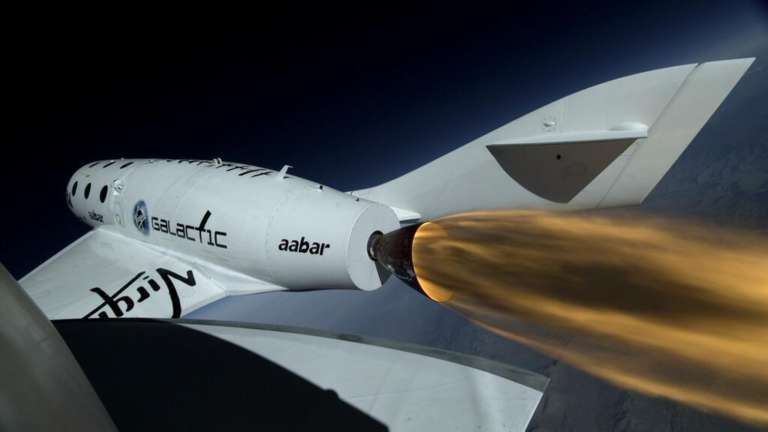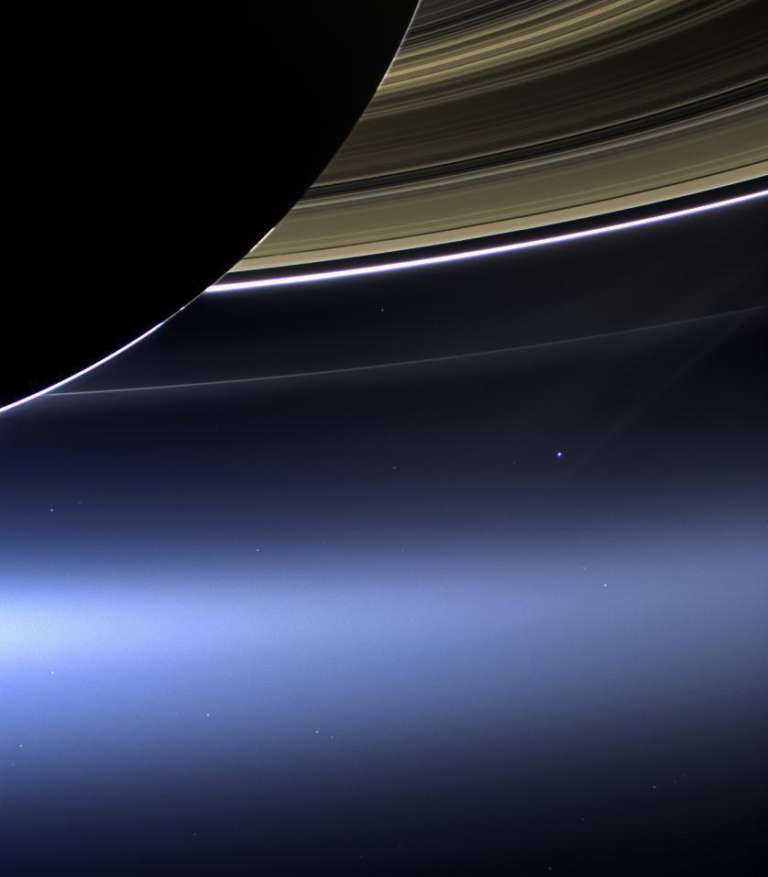Casey Dreier • Nov 21, 2018
This Thanksgiving, avoid the politics and talk space instead
In an increasingly polarized United States, a familial gathering around Thanksgiving dinner can easily veer into political arguments and heated debates. Data bear this out: average Thanksgiving visits decreased by an average of 30 minutes after the elections of 2016.
As we like to say at The Planetary Society: space brings us together. So if you're expecting to gather with extended family on Thanksgiving, avoid the politics. Here are some conversation starters to use at the dinner table that everyone can engage in.
There is a robot landing on Mars this Monday

NASA's InSight mission will land on Mars—one way or another—on Monday, November 26th, aka "Cyber Monday.” This mission will listen for Marsquakes and probe the depths of the planet to determine its inner structure, revealing new insights on the formation of our solar system and Earth. Tell your family they can take a break from work and watch it live on NASA TV starting at noon PT/3pm ET.
InSight is the latest in a series of Mars missions launched by NASA, the European Space Agency, and the Indian space agency that have revolutionized our understanding of Mars in the last 20 years. Nearly everyone at the Thanksgiving table will have lived through this scientific revolution of the Red Planet, the only other planet in the solar system that has its own satellite communications network and is occupied entirely by robots.
Mars is even up in the early evening sky right now, so take a look after dinner and see if you can spot the red dot where humanity's next mission of scientific discovery will land.
There are oceans of liquid water in our own solar system that could host life

Water is everywhere in our solar system, even on distant moons orbiting the colossal outer planets. Water is necessary for life as we know it. Moons like Europa (at Jupiter) and Enceladus (at Saturn) may have water in contact with a rocky core, energy, and nutrients necessary for life as well. NASA is planning a mission, the Europa Clipper, that will help pave the way for further life-detection missions in the outer planets.
What would it mean if we found life floating (or swimming?) around in the dark oceans of distant moons? How would it change our understanding of biology? Would it provide new insights into medicine? What would be the philosophical implications of discovering a "second genesis” of life in our own solar system, and of the likelihood life exists elsewhere?
How could we stop an asteroid coming to hit Earth?

As Neil deGrasse Tyson says, we live in a cosmic shooting gallery. There are tens of thousands of asteroids and comets orbiting the sun, and some of them have orbits that cross that of Earth's. On the occasion that one of these hits our planet, they can induce mass extinction events (like the dinosaurs), severe climatic catastrophe, level cities, or merely cause significant property damage.
So if there's one thing that everyone can agree on, it's that getting hit by a massive asteroid would be bad. Fortunately, it's one of the only large-scale natural disasters that we can prevent. Novel ideas exist from gravity tractors, slamming something big into an asteroid to alter its trajectory, to swarms of small spacecraft with lasers.
But we have to find them first. NASA and amateur astronomers around the world are looking, but so far we have no dedicated space telescope searching for NEOs. Is that a worthy investment by the world? Who should look for asteroids and which countries should have responsibility for deflecting one if it's on a collision course for Earth? How much of our survival should depend on luck, and how much should we invest into ensuring we are safe from such disasters?
If you could afford it, would you take a trip to space?

Tourists have visited the International Space Station, though they paid on the order of $20 million per visit. Now there are private new companies preparing to launch paying customers on suborbital flights (think up and down) into space for a mere $250,000 (give or take) per seat.
Virgin Galactic (based at Spaceport America in New Mexico) is busy readying SpaceShipTwo for flight. It's a small space plane that takes off and lands at a runway, ultimately giving you about 6 minutes of weightlessness at 110km up. If you have a family member that is particularly excited, they can register their interest for a flight with Virgin Galactic already.
Blue Origin (based in Kent, Washington) has yet to announce pricing or timelines but is designing a capsule that can launch you into space the old-fashioned way (on a rocket) and provides a similar amount of time in zero-g.
Both companies are privately-funded by billionaire benefactors, Richard Branson (Virgin) and Jeff Bezos (Blue Origin). Would you go? Or would you wait to see if the billionaires go first?
We live on a mote of dust in a vast cosmic ocean, and the only comfort we have is each other

Space is big. Very big. Bigger than words can express big. And so far, in all of our searching, Earth is the only place we know of that has life, and we are the only species that have evolved high intelligence and technology. The Hubble Space Telescope helps give some perspective, and the upcoming James Webb Space Telescope (coming in 2021) will be able to look even further back in space and time.
While space is so big that, statistically speaking, there may be other intelligent life out there, it's very possible they could be so far away that we will never communicate with them, much less visit. It's also possible we humans are the only ones out here. While it may be an awful waste of space, there's no reason that the cosmos should bend to our desires. People are listening and looking for signals, but there is no data yet.
Either way, the only thing you know for sure is that you exist right here and right now. This moment is guaranteed, but that's it. When you share a meal with friends and family, they are the only humans in the entire universe like them, and you the only human in the universe like you. Why ruin that with politics? Take the cosmic perspective. Enjoy the meal.
Support our core enterprises
Your support powers our mission to explore worlds, find life, and defend Earth. You make all the difference when you make a gift. Give today!
Donate

 Explore Worlds
Explore Worlds Find Life
Find Life Defend Earth
Defend Earth

